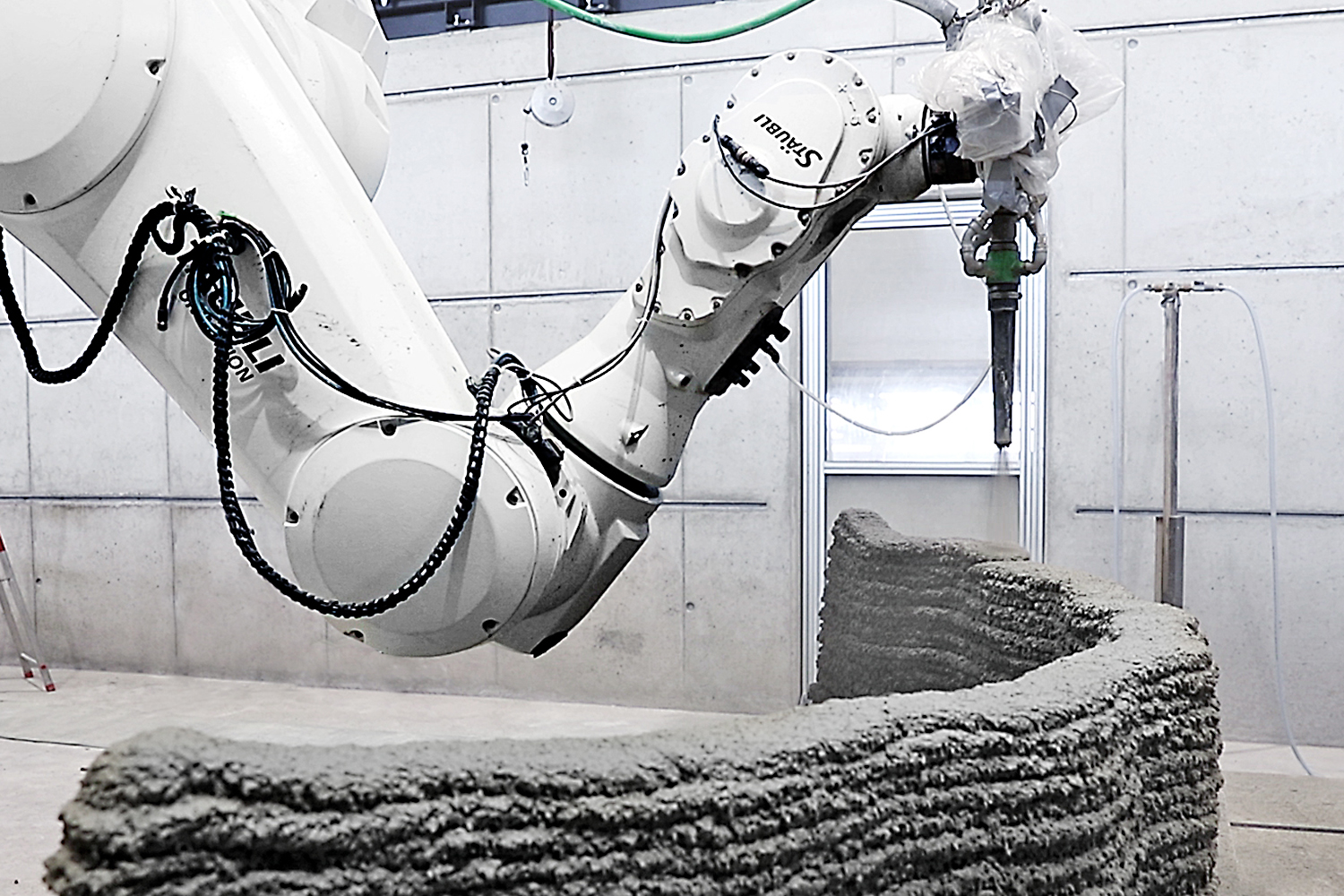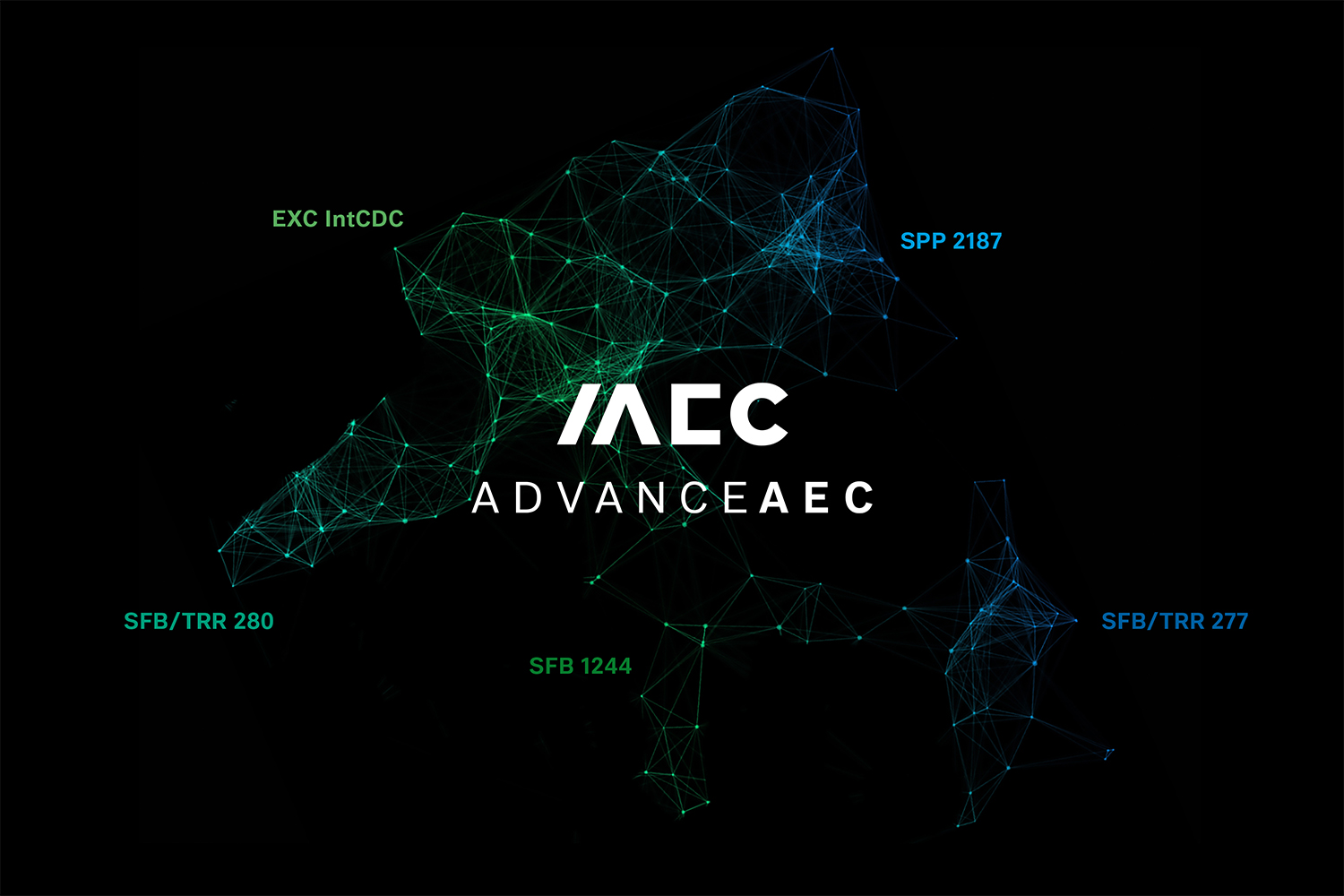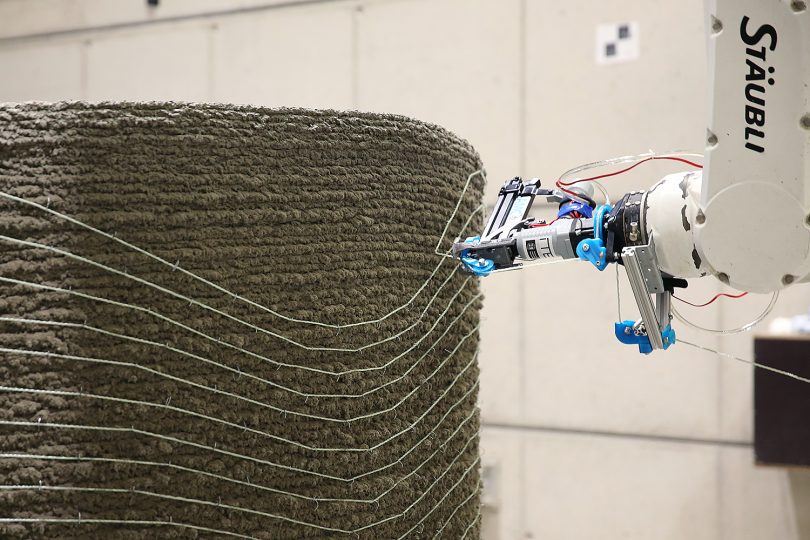Architecture and Construction: More dialogue between research networks TU Braunschweig in the new "AdvanceAEC" network
Five research networks have launched the “Research Network for Advancing Architecture, Engineering and Construction”. The network brings together international researchers who strive to advance architecture, engineering and construction through digital technologies and an interdisciplinary approach. It aims to address the diverse environmental, economic and socio-cultural challenges facing the construction world. The Collaborative Research Centre/Transregio “Additive Manufacturing in Civil Engineering” (SFB/TRR277) of TU Braunschweig and TU Munich, whose spokesperson is Professor Harald Kloft from the Institute of Structural Design, is also involved in “AdvanceAEC”.

The scientists of TRR277 want to fundamentally research additive manufacturing (3D printing) as a novel digital manufacturing technology for the construction industry. Photo credit: ITE/TU Braunschweig
The network provides a platform to share expertise, to promote and to build an international research community in the fields of architecture, civil engineering, mechanical engineering, computer science, robotics and social sciences.
The focus is on the following topics:
- Architecture, Engineering and Construction
- Interdisciplinary research
- Co-design and digital technologies
- Resource-efficient and sustainable construction
- Productivity and automation
The aim of the network is to promote intensive exchange both at the level of the participating research networks and at the individual level of the researchers. The platform for this is the joint website www.advanceaec.net.
Cooperation at the network level is driven by joint activities such as colloquia, symposia and other events. A central role in networking is played by the member database, which offers an opportunity for direct exchange and scientific cooperation.
Scientists working in the fields of AdvanceAEC are invited to join the network, to participate in its development and to take advantage of the associated activities. Free registration is available on the website.
The launch event of the AdvanceAEC research network will take place online on 16 November for all registered members. The research networks will be introduced by the respective speakers. Prof. Dr. Philippe Block from ETH Zurich, speaker of the National Centre of Competence in Research NCCR dfab, will be the guest of honour and lead the subsequent discussion.
Brief descriptions of network partners and professional contact:
• EXC 2120: Integrative Computational Design and Construction for Architecture (IntCDC), University of Stuttgart
Prof. Achim Menges, Speaker EXC 2120 IntCDC, University of Stuttgart
Phone: +49 711 685-827 86, achim.menges@icd.uni-stuttgart.de
The EXC 2120 uses the full potential of digital technologies to rethink planning and building in an interdisciplinary way. A systematic, holistic and integrative computer-based approach lays the methodological foundations for a comprehensive modernisation of construction and thus enables trailblazing innovations.
• SFB 1244: Adaptive skins and structures for the built environment of tomorrow, University of Stuttgart
o. Prof. Dr.-Ing. Dr.-Ing. E.h. Dr. h.c. Werner Sobek, Speaker SFB 1244, University of Stuttgart
Phone: +49 711 685-662 26, werner.sobek@ilek.uni-stuttgart.de
The aim of SFB 1244 is to find answers for the building industry to the pressing ecological and social questions of our time. The integration of adaptive elements in load-bearing structures, envelope systems and interior fittings is considered an important approach for this. SFB 1244 is researching the fundamentals, potential and implications of this approach.
• SFB/TRR 277: Additive Manufacturing in Engineering, TU Braunschweig/TU München
Prof. Dr.-Ing. Harald Kloft, Speaker SFB/TRR 277, TU Braunschweig
Phone: +49 531 391-3571, h.kloft@tu-braunschweig.de
The SFB/Transregio TRR 277 aims to fundamentally research additive manufacturing (3D printing) as a novel digital manufacturing technology for the building industry. Automated additive material application enables the construction of buildings with a high degree of design freedom and resource-saving material use.
• SPP 2187: Adaptive modularized constructions made in flux, Ruhr University Bochum
Prof. Dr.-Ing. habil. Peter Mark, SPP 2187, Ruhr Universität Bochum
Phone: +49 234 32 22700 / 25980, peter.mark@rub.de
Priority programme 2187 develops methods for the production of adaptive modules made of high-performance concrete in quality-assured, digitised flow production in order to build faster, more precisely and more resource-efficiently and to preserve the individuality of the structures.
• SFB/TRR 280: Design Strategies for Material-Minimised Carbon Reinforced Concrete Structures—Principles of a New Approach to Construction, TU Dresden/RWTH Aachen
Prof. Dr.-Ing. Dr.-Ing. E.h. Manfred Curbach, Speaker SFB/TRR 280, TU Dresden
Phone: +49 351 463-37660, manfred.curbach@tu-dresden.de
The aim of the SFB/TRR 280 is to create the foundations for the construction of the future: completely rethought concepts for the design, modelling, construction, manufacture and use of sustainable resource-efficient building elements made of mineral, carbonreinforced building materials.


